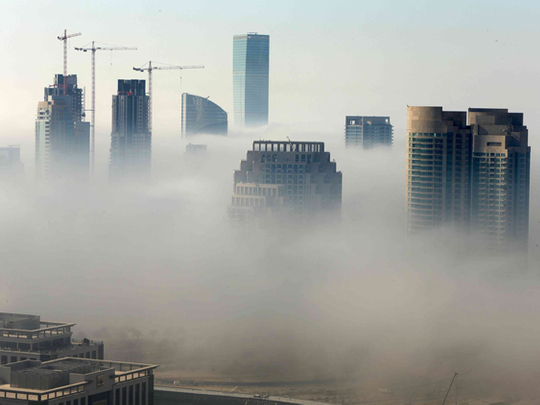
Dubai residents do not appear to be seeing the benefit of falling freehold property prices. Rather, average rental rates have risen significantly across the emirate this year.
Residential home prices fell about 12.2 per cent year-on-year to June, according to Knight Frank, while mainstream rents cooled at 1.2 per cent. Yield returns as a first-hand result of such sale-rent combinations have strengthened on the back of demand over the same period, with a 9.9 per cent increase to reach 7.42 per cent in July.
“This is good news for an income-seeking investor as yields are high compared to other relative safe havens,” Diaa Noufal, Associate Partner, Mena Research, Knight Frank, said in a report.
Agents and developers say the situation puts Dubai in a better position than other prime markets. “Dubai real estate is without a doubt offering much higher yields, averaging 5-7.2 per cent compared to the London market, where yields achieved are 3-4 per cent maximum, and Hong Kong 2.3-2.8 per cent,” says Dounia Fadi, CEO, Elysian Real Estate. “Increased rental yields have encouraged investors and end users alike to purchase properties of varied nature.”
Rental yields work as are strong drivers bringing long-term investors into the market. Add to this continuing construction on developments such as Dubai South and the Dubai Canal in the countdown to Expo 2020 and buyer confidence improves considerably.
“Dubai also enjoys constant infrastructure growth and has a reputation for not easing off from infrastructure investment,” explains Fadi.
Robin Teh, Country Manager, Chestertons UAE, also says higher yields are making this market attractive for investors, and expects to see more deals.
“[It] has been a key investment destination for overseas investors due to its safe haven status and the country’s visionary leaders who have put the UAE on a growth path,” he says.
Teh adds that interest in high-quality office and retail space is growing. “With the recent spate of launches in the residential segment, investors foresee an oversupply scenario and therefore have started considering commercial projects as well. The best part about investing in Dubai realty is the rich dividends on maturity.”
So how will rental yields perform in the interim? John Stevens, MD of Asteco, says they might eventually decline, which could improve Dubai’s appeal for expatriate workers.
“After the decline witnessed in Q2, overall rental rates in Q3 remained broadly unchanged, albeit with some upward and downward adjustments in select areas,” he says. “Looking to 2020 and beyond, with the number of off-plan projects launched over the past few years, the total supply could increase to nearly 70,000 units. These deliveries could [put] downward pressure on rental rates.”











